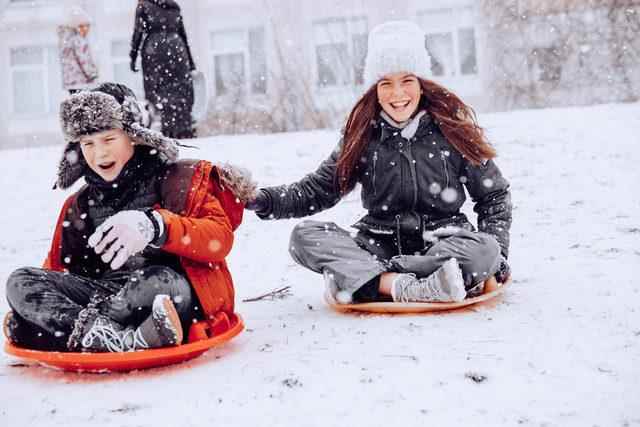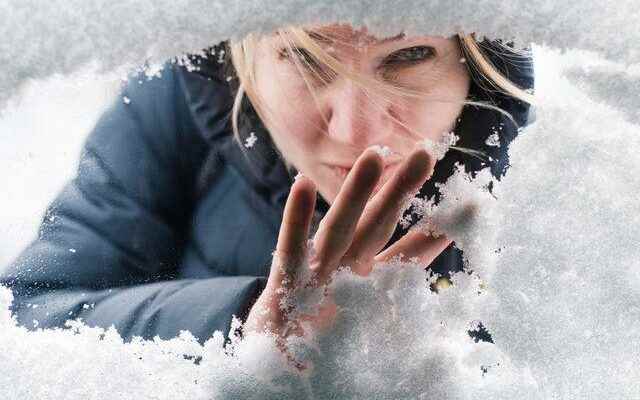Fracture-dislocations and dry skin caused by falling are other important problems that are frequently seen in heavy snowfall. Experts of Acıbadem Healthcare Group explained 12 rules to be protected from snow and extreme cold; made important suggestions and warnings.
5 RULES FOR HEART HEALTH
Acıbadem University Atakent Hospital Cardiology Specialist Prof. Dr. Ahmet Karabulut
EXPERIENCE CAREFULLY
Cold weather can cause additional effort such as clearing snow, pushing a vehicle left on the road, and running to avoid snowfall. However, be careful, as exerting excessive effort in these weather conditions can cause palpitations, shortness of breath, rhythm disturbances, and worse, heart attack.
ALWAYS PROTECT YOUR HEAD WITH A BEret
Most of the heat loss in our body usually takes place in the head area, as a result our heart has to work harder. Therefore, never forget to protect your head with a beret while going out.
DRESS IN LAYERS
Losing heat in cold weather poses a risk of hypothermia. It also increases the risk of heart attack. Dressing in multiple layers such as cabbage or choosing very thick clothes can disrupt our heat balance. Using a thermal suit prevents heat loss. Wearing two layers instead of multiple layers will be enough to prevent heat loss.
DO NOT LEAVE WITHOUT WEARING A MASK
Masks, which are indispensable for the pandemic, will protect us from the cold this time. Breathing cold air directly disrupts the heat balance, can cause palpitations and heart pain. Masks warm and soften the air we breathe.
FOR Plenty of Water
It is often forgotten to consume water in cold weather. As a result, shortness of breath and palpitations can be seen more frequently in those who drink less water, and the blood becomes thicker. Consuming 8-10 glasses of warm water a day will protect your heart health.
BROKEN – 4 RULES AGAINST DISCONNECTIONS
Acıbadem Dr. Şinasi Can (Kadıköy) Hospital Emergency Service Specialist Dr. Mediha Doganay
KEEP YOUR STEPS SMALL
Even one wrong step, especially on icy and slippery floors, can cause serious accidents. E.g; After a simple slip, a fall on the hip or back may result in coccyx fractures or spinal fractures. Wide steps increase the risk of slipping on the ice. Therefore, in order to prevent fractures, take care to walk with small steps and looking at the road as much as possible.

CHOOSE SAFE SHOES
Make sure that your shoes have the features that will allow you to take safe steps. For example, you can choose shoes made of material suitable for slippery floors. Having a non-slip textured, rough and rubber sole can reduce the risk of slipping and falling.
DO NOT WALK WITH YOUR HANDS IN POCKETS
In cold weather, most of us walk with our hands in our pockets to avoid getting cold. But we need our hands to keep our balance. Moreover, it is very important to keep hands free in order to prevent more serious injuries during a fall.
USE A BACKPACK
Use a backpack instead of a handbag to keep your balance while walking. When there is weight in the hands, we may have difficulty in maintaining our balance. For this reason, be careful to walk by putting your loads in your backpack. If you slide with your hands free, you can avoid a fall or dodge more lightly by keeping your balance.

3 RULES AGAINST SKIN PROBLEMS
Acıbadem Dr. Şinasi Can (Kadıköy) Hospital Dermatology Specialist Dr. Suleyman Izzet Karahan
DO NOT BATH WITH VERY HOT WATER
Do not take a bath with very hot water to avoid exacerbating the dryness of the skin. In addition, prolonged contact with water can cause skin dryness. For this reason, it is very important that you keep the bath time limited to as little as 5 minutes.
INCREASE THE ROOM HUMIDITY
By increasing the humidity of the room in your home and workplace, you can reduce the complaint of dryness on the skin. Make sure that the humidity in your room is around 60 percent. Make it a habit to keep the room temperature between 21-25 degrees, as hot or cold weather can increase skin dryness.

REMEMBER YOUR HANDS
In order to prevent problems such as dryness and itching that may occur on your skin in cold weather, moisturize your lips and hands regularly as well as your face. Make it a habit to apply lip care products frequently and to moisturize your hands after every wash. In addition, wearing gloves will ensure that your skin is better protected and your hands will look healthier.
